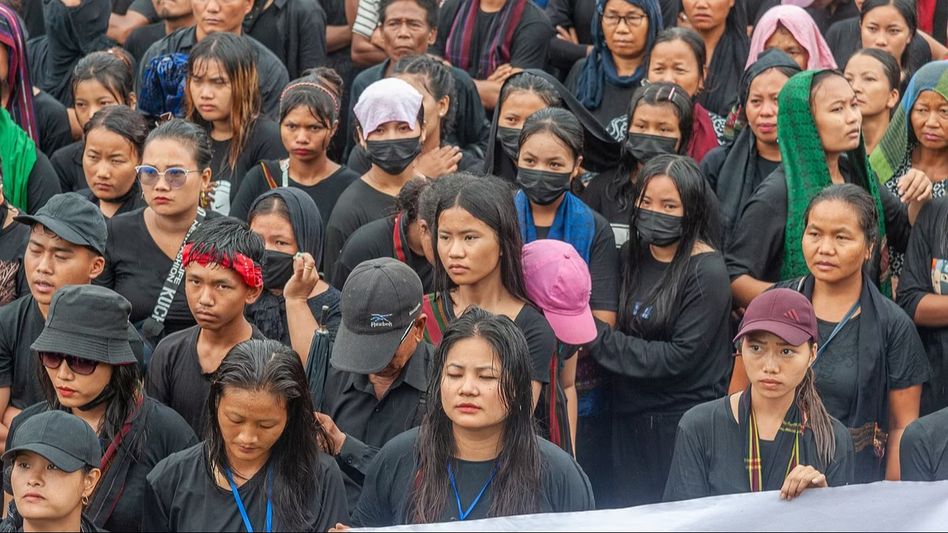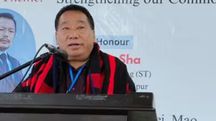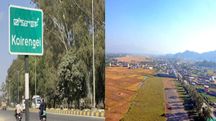Manipur: Centre asks state to study delisting Kukis, Zomis from ST list
The Indian government has initiated a review concerning the Scheduled Tribe (ST) status of certain communities, specifically the Kukis and Zomis in Manipur.

The Indian government has initiated a review concerning the Scheduled Tribe (ST) status of certain communities, specifically the Kukis and Zomis in Manipur.
A representation made by Maheshwar Thounaojam, National Secretary of the Republican Party of India (Athawale), has prompted the Centre to request the Manipur government to consider the deletion of the "Nomadic Chin-Kuki" from the ST list in the state.
Speaking to India Today NE, Maheshwar Thounaojam said, "I have met the Union Tribal Affairs Minister Arjun Munda during the parliament session during which a memorandum has given to him with all the documents highlighting, Kukis and Zomis should not get the benefit of ST status as per the Indian constitution."
Further, the RPI leader also cited an example of the Supreme Court's judgement of the state of Maharashtra wherein on January 5, 2011, the Apex court mentioned that those who are not original inhabitants of India cannot get the ST status.
Speaking on the documents submitted along with the memorandum to the Union Minister, the RPI leader claimed that the Kukis and Zomis are not original inhabitants of India and are refugees, hence it is illegal.
In a letter dated December 26, 2023, the Union government said the process of inclusion or exclusion from the ST list requires the proposal to originate from the concerned State government and hence it was sending the representation to the State government for its recommendation.
Also Read: Congress delegation holds meeting with Manipur Chief Secretary for 'Bharat Jodo Nyay Yatra' inauguration
This representation is part of a broader discussion on the inclusion and exclusion of communities from the ST list, which is governed by criteria established by the Lokur Committee in 1965.
These criteria include primitive traits, distinctive culture, geographical isolation, shyness of contact with the community at large, and backwardness.
The current debate arises amidst an ethnic conflict in Manipur, where dominant valley-based Meitei people and hill-based Kuki-Zo people have been in strife since May 3, 2023.
The conflict was triggered by a Manipur High Court order directing the state government to send a recommendation on ST status for Meiteis to the Centre, which has caused unrest among existing STs in the state.
Thounaojam's argument hinges on the premise that indigeneity should be the principal criterion for defining STs, suggesting that Kukis and Zomis do not qualify as original inhabitants of Manipur.
The process for altering the ST list requires a proposal from the concerned state government, followed by a series of approvals from the Union Tribal Affairs Ministry, the Office of the Registrar General of India (ORGI), and the National Commission for Scheduled Tribes.
Only after these institutions concur can the proposal advance to the Cabinet for an amendment to the Constitution (Scheduled Tribes) Order, 1950. The final decision rests with the President, who issues a notification specifying the changes.
This inquiry into the ST status of Kukis and Zomis reflects ongoing discussions about the criteria for ST classification and the adequacy of the current procedure for inclusion in the ST list.
While the Centre has deemed the existing procedure adequate as of March 15, 2023, it has faced criticism for being obsolete and rigid, potentially excluding or delaying the inclusion of communities.
The Manipur government's response to the Centre's request will be a significant factor in determining the future ST status of the Kukis and Zomis in the region.
Copyright©2026 Living Media India Limited. For reprint rights: Syndications Today









